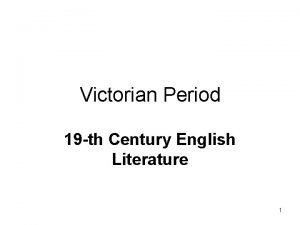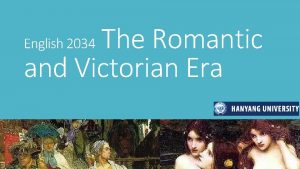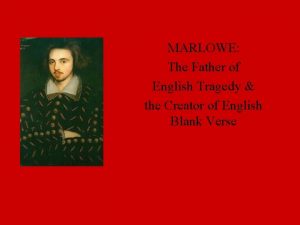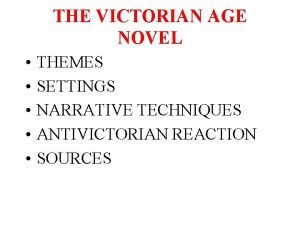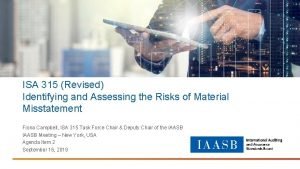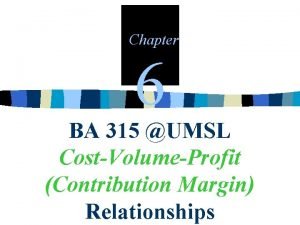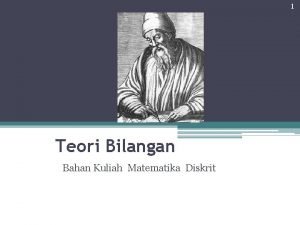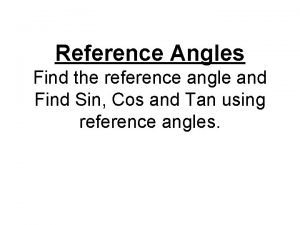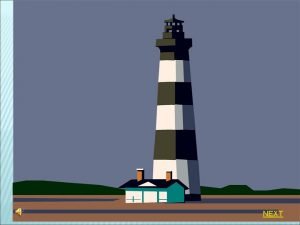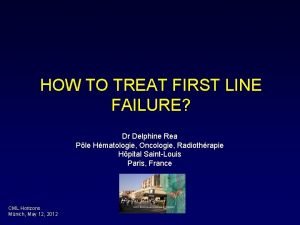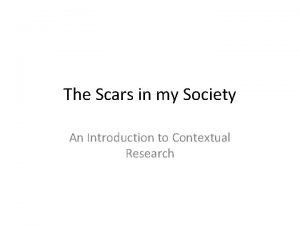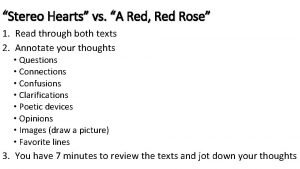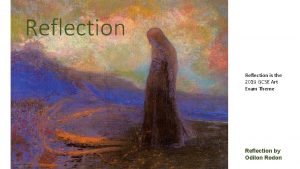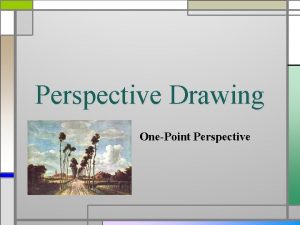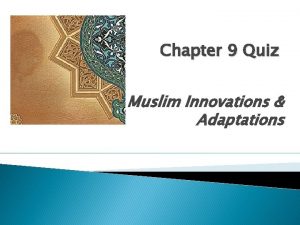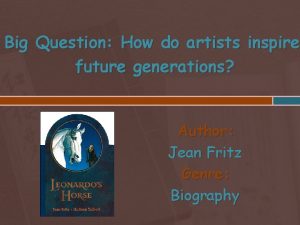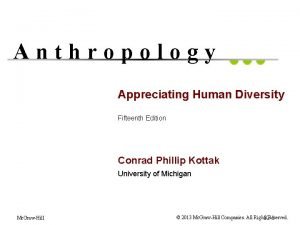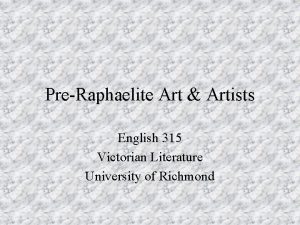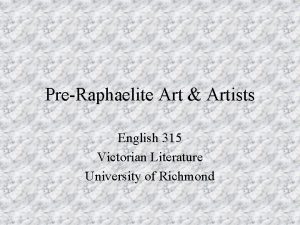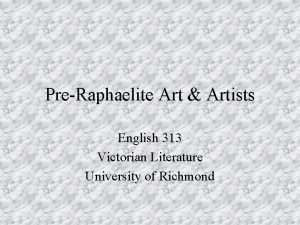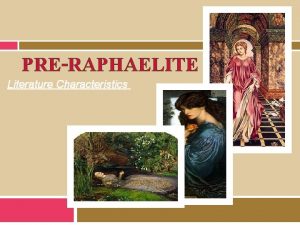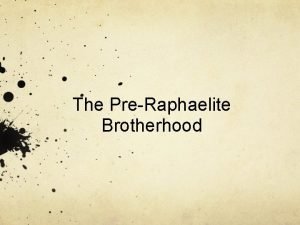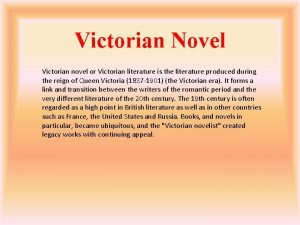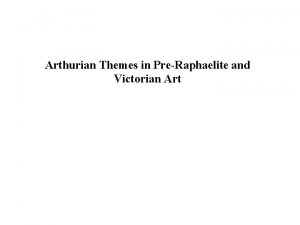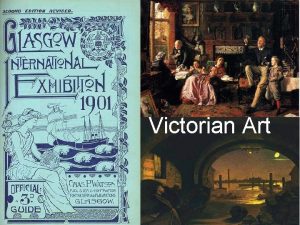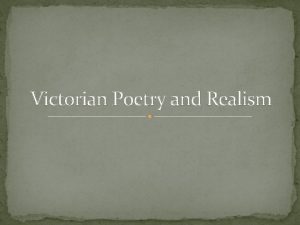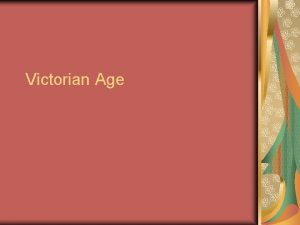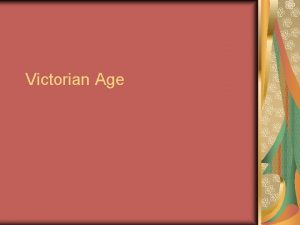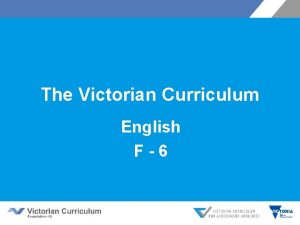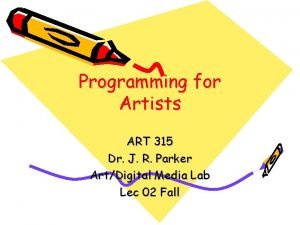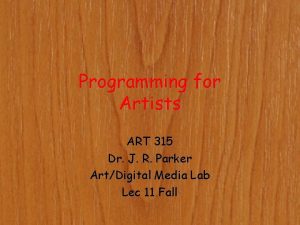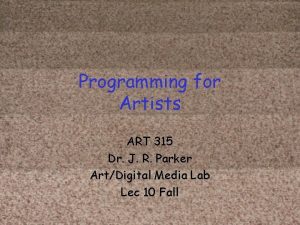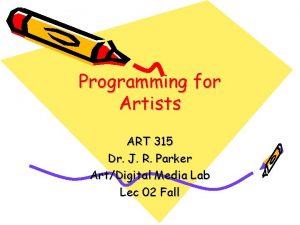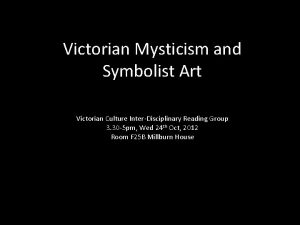PreRaphaelite Art Artists English 315 Victorian Literature University










































- Slides: 42

Pre-Raphaelite Art & Artists English 315 Victorian Literature University of Richmond

Many of the images in this presentation were taken from The Pre-Raphaelite Collection, a web-site maintained by Julia Kerr. http: //www. webmagick. co. uk/prcoll Other sources include Brian Yoder’s Art Gallery: http: //www. primenet. com/~byoder/art. htm Carol Gerten’s Fine Art: http: //cgfa. kelloggcreek. com/ Thomas Tobin’s The Pre-Raphaelite Critic: http: //www. engl. duq. edu/servus/PR_Critic The Rossetti Archive: http: //jefferson. village. virginia. edu/rossetti. html The Web Museum: http: //metalab. unc. edu/wm/paint/auth/rossetti/

The Pre-Raphaelite Brotherhood • • William Holman Hunt, b. 1827 Dante Gabriel Rossetti, b. 1828 John Everett Millais, b. 1829 William Michael Rossetti, b. 1829 – Other members: James Collinson, Thomas Woolner, Fredric George Stephens

“The Immortals” • Jesus • Shakespeare and the author of Job – Homer, Dante, Chaucer, Leonardo, Goethe, Keats, Shelley, King Alfred, Landor, Thackeray, George Washington, Robert Browning – Others including Elizabeth Barrett Browning, Boccaccio, Newton, Poe, etc.

Principles of Royal Academy Art • • • Objects drawn with firm, solid outlines Composition in S or triangle shape Colors subdued, landscape brown Light: Shadow : : 1: 3 or 1: 4 “All human figures painted free from deformity, dressed in clean new clothes”

Principles of Pre-Raphaelite Art • Rejecting the “mannered formalism” of Academy Art, of artists following Raphael • Reclaiming an Italian tradition (suggested by Ruskin) of naturalism • Concern for morality in art • Mythic/religious/poetic subjects • Subjects drawn from nature

Religious Subjects Early paintings by the PRB

John Everett Millais, “Christ in the House of his Parents, ” 1850

Dante Gabriel Rossetti, “The Girlhood of Mary Virgin, ” 1849

Dante Gabriel Rossetti, “The Annunciation, ” 1850

William Holman Hunt, “The Light of the World, ” 1853

William Holman Hunt, “The Scapegoat, ” 1854 -55

William Holman Hunt, “The Awakening Conscience, ” 1853

Literary Subjects: The Lady of Shalott The Lady was a favorite subject of Pre-Raphaelite artists and others inspired by the PRB. Nina Auerbach notes that Tennyson’s poem explored the mind of a woman/artist; these paintings make her an object of art.

William Holman Hunt, “The Lady of Shalott, ” 1889 -92

John William Waterhouse, “The Lady of Shalott, ” 1888

Sidney Harold Meteyard, “The Lady of Shalott”

More Literary Subjects: Ophelia is also a favorite subject of many of the PRB. In some versions, she is strikingly like Tennyson’s Lady.

Arthur Hughes, “Ophelia, ” 1852

John Everett Millais, “Ophelia, ” 1852. The model is Elizabeth Siddal.

Dante Gabriel Rossetti, “The First Madness of Ophelia, ” 1864

John William Waterhouse, “Ophelia, ” 1894

Rossetti on Women: Two of Rossetti’s favorite models were his mistress, fianceé, and later wife, Elizabeth Siddal, and the wife of his friend William Morris, Jane Morris (neé Burdon). Other favorites were Annie Miller (seen in his friend Holman Hunt’s painting, “The Awakening Conscience”), and Fanny Cornforth (“Found, ” “La Ghirlandata, ” and many others).

Dante Gabriel Rossetti, “Found” (unfinished), 1854

'There is a budding morrow in midnight: 'So sang our Keats, our English nightingale. And here, as lamps across the bridge turn pale In London's smokeless resurrection-light, Dark breaks to dawn. But o'er the deadly blight Of Love deflowered and sorrow of none avail, Which makes this man gasp and this woman quail, Can day from darkness ever again take flight? Ah! gave not these two hearts their mutual pledge, Under one mantle sheltered 'neath the hedge In gloaming courtship? And, O God! to-day He only knows he hold her; - but what part Can life now take? She cries in her locked heart, "Leave me - I do not know you - go away!"

Dante Gabriel Rossetti, Elizabeth Siddal, 1854

Dante Gabriel Rossetti, Elizabeth Siddal, 1854

“In an Artist’s Studio, ” Christina Rossetti, 1856/1896 One face looks out from all his canvases, One selfsame figure sits or walks or leans We found her hidden just behind those screens, That mirror gave back all her loveliness. A queen in opal or in ruby dress, A nameless girl in freshest summer-greens, A saint, an angel; --every canvas means The same one meaning, neither more nor less. He feeds upon her face by day and night, And she with true kind eyes looks back on him Fair as the moon and joyful as the light: Not wan with waiting, not with sorrow dim; Not as she is, but was when hope shone bright; Not as she is, but as she fills his dream.

Dante Gabriel Rossetti, Pen sketch of Jane Burdon, later Morris, 1858

Dante Gabriel Rossetti, “Mariana, ” 1870

John Everett Millais, “Mariana, ” 1851

Dante Gabriel Rossetti, “Water Willow, ” 1871

Dante Gabriel Rossetti, “The Daydream”

Dante Gabriel Rossetti, “Proserpine, ” 1874

Afar away the light that brings cold cheer Unto this wall, - one instant and no more Admitted at my distant palace-door. Afar the flowers of Enna from this drear Dire fruit, which, tasted once, must thrall me here. Afar those skies from this Tartarean grey That chills me: and afar, how far away, The nights that shall be from the days that were. Afar from mine own self I seem, and wing Strange ways in thought, and listen for a sign: And still some heart unto some soul doth pine, Whose sounds mine inner sense is fain to bring, Continually together murmuring, "Woe's me for thee, unhappy Proserpine!"

Dante Gabriel Rossetti, “Astarte Syriaca, ” 1877

Dante Gabriel Rossetti, “Boca Baciata, ” 1859

Dante Gabriel Rossetti, “Venus Verticordia, ” 18641868

Dante Gabriel Rossetti, “The Beloved” (“The Bride”), 1865 -66

Dante Gabriel Rossetti, “Lady Lilith”

Dante Gabriel Rossetti, “La Ghirlandata, ” 1873

Dante Gabriel Rossetti, “The Blessed Damozel, ” 1875 -78
 Victorian period in english literature
Victorian period in english literature Victorian period in english literature
Victorian period in english literature Romanticism vs victorianism
Romanticism vs victorianism Characteristics of a victorian novel
Characteristics of a victorian novel Egyptian floral design
Egyptian floral design Egyptian floral period
Egyptian floral period What is informal balance in art
What is informal balance in art Physical functions of art examples
Physical functions of art examples Famous op art artists
Famous op art artists University wits
University wits The father of english drama
The father of english drama The victorian period (1832–1901)
The victorian period (1832–1901) The victorian novel schema
The victorian novel schema Victorian curriculum visual arts
Victorian curriculum visual arts Victorian curriculum progression points
Victorian curriculum progression points Victorian curriculum english
Victorian curriculum english Isa 315
Isa 315 Isa 315 revised effective date
Isa 315 revised effective date Ba 315
Ba 315 Find the exact value sin(225)
Find the exact value sin(225) Kombinasi lanjar
Kombinasi lanjar Nep 315
Nep 315 Find the reference angle
Find the reference angle Jika cos (90-α) = cos α . maka tan α =
Jika cos (90-α) = cos α . maka tan α = 315
315 Economic 315
Economic 315 Mode of operation
Mode of operation Ee-315
Ee-315 Economic 315
Economic 315 Ba 315
Ba 315 315
315 315 production
315 production Scars in the society
Scars in the society Metaphors in stereo hearts
Metaphors in stereo hearts Frank stella
Frank stella Reflection art gcse
Reflection art gcse artists use this perspective to show objects face-on.
artists use this perspective to show objects face-on. Latin rock instrumente
Latin rock instrumente Joel penkman research page
Joel penkman research page Why was polo a popular sport among wealthy muslims?
Why was polo a popular sport among wealthy muslims? How do artists inspire future generations
How do artists inspire future generations Famous artist statement
Famous artist statement In nonindustrial societies, artists
In nonindustrial societies, artists
